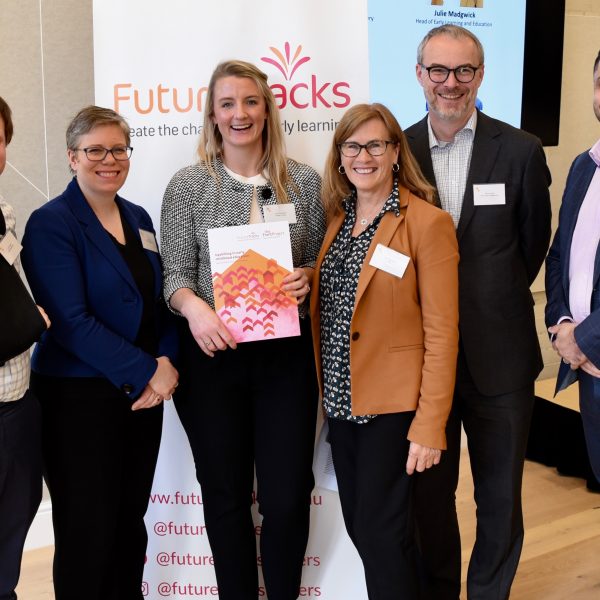New research yields framework, best practices to support strong ECEC workforce

Two studies have been produced by the Learning Policy Institute (LPI), aimed at exploring the connection between successful outcomes for children entering school, the preparation of educators entering the workforce and the effective policies and practices needed for early education preparation.
Although contextualised to the United States, the studies will be of interest to those working in the Australian early childhood education and care context, particularly on the eve of the ARACY National Summit, which seeks to explore how the knowledge and understanding about how children learn best can be implemented to affect real change.
As in the Australian context, the quality of preparation for early childhood educators varies greatly across the US, and educators often struggle to attain credentials and degrees in a timely manner. Currently in the US there is insufficient focus on what’s being done well and how those practices can be replicated to strengthen the workforce pipeline, the authors said.
Access to high-quality early childhood education is critical to children’s development and readiness for kindergarten, regardless of country of origin. This, in turn, requires a highly prepared and stable early childhood workforce.
The two new studies were conducted with the aim of helping policymakers and practitioners understand what is needed to develop a diverse, high-quality early childhood workforce.
The first, Early Childhood Essentials: A Framework for Aligning Child Skills and Educator Competencies provides a framework for thinking about the skills and competencies educators need to support young children.
The second, Promising Models for Preparing a Diverse, High-Quality Early Childhood Workforce describes innovative and affordable higher education pathways that help educators build these competencies and suggests recommendations for policy.
The Framework aims to address and outline the essential skills that children need to learn early in life, and the core competencies educators must master to teach and care for them well.
Offering a baseline of knowledge to help decision-makers think critically about how to improve the early learning programs they oversee, it lays out the interrelated, essential skills children need to develop early in life to succeed in school — cognitive, social-emotional, physical, language and literacy, and mathematical and scientific reasoning — and the associated essential competencies and foundational conditions within and surrounding the classroom that early educators should have to help children develop these skills successfully.
The Promising Models study shares findings from three programs in California that recruit and prepare educators to teach in programs serving children from birth to age five. Each program offers its own distinct approach to preparing racially, ethnically, and linguistically diverse cohorts of current and aspiring educators, but share core elements of making preparation affordable and accessible for diverse students, offering foundational knowledge in child development, and providing sustained, mentored classroom experience.
Early childhood educators graduate from these programs well-prepared to create engaging, inclusive, and developmentally grounded learning environments and effectively reach and teach diverse learners. The programs are:
- The Family Child Care Apprenticeship: An innovative pilot project designed to increase the qualifications of family childcare providers through coursework paired with on-the-job training and support.
- Skyline College’s Education/Child Development Program: A community college-based program with a focus on preparing a range of students working towards an associate degree or Child Development Permit through a supportive, hands-on learning community and early teaching experience in a campus lab school.
- EDvance at San Francisco State University: A pathway program supporting early educators earning a bachelor’s degree, especially those from groups historically underrepresented in higher education.
Alongside the successful Californian programs, researchers also presented insights gained from policies enacted at scale in New Jersey — which rapidly increased the number of credentialed early educators — to surface valuable guidance for policymakers and practitioners nationwide seeking to ensure that all children have teachers who meet high standards and who reflect the racial, ethnic, cultural, and linguistic diversity of young children and their families.
LPI President, and Stanford Professor Emeritus Linda Darling-Hammond said that while it was known and appreciated that high-quality early learning experiences build a foundation on which childrens path to success is built, “currently few systems are designed to enable educators to achieve the competencies needed because of relatively low standards for preparation, poor compensation, and lack of investment in professional supports.”
“Taken together, these reports draw a clear line from the needs of children in the learning setting to the necessary preparation and supports early childhood educators need to the state and local policies and practices that lay the groundwork for their development and implementation,” Professor Darling-Hammond said.
Preparing a Diverse, High-Quality Early Childhood Workforce was prepared by Madelyn Gardner, Hanna Melnick, Beth Meloy, and Jessica Barajas. Read the full report and brief at this link.
Early Childhood Essentials was authored by Beth Meloy and Abby Schachner. To read the full report, fact sheet, and infographic visit this link.
Popular

Practice
Provider
Quality
Research
Workforce
New activity booklet supports everyday conversations to keep children safe
2025-07-10 09:00:16
by Fiona Alston

Quality
Practice
Provider
Workforce
Reclaiming Joy: Why connection, curiosity and care still matter in early childhood education
2025-07-09 10:00:07
by Fiona Alston

Policy
Practice
Provider
Quality
Research
Workforce
Beyond the headlines: celebrating educators and the power of positive relationships in early learning
2025-07-07 10:00:24
by Fiona Alston













